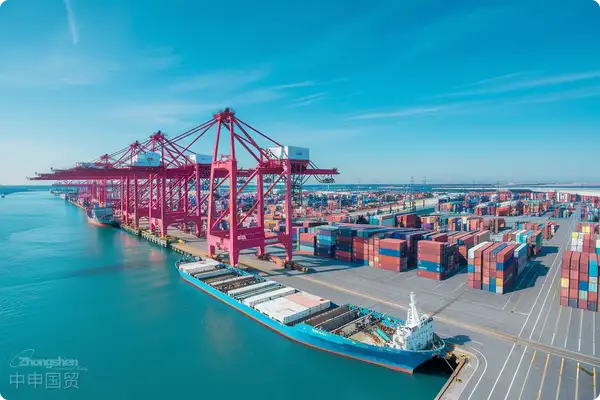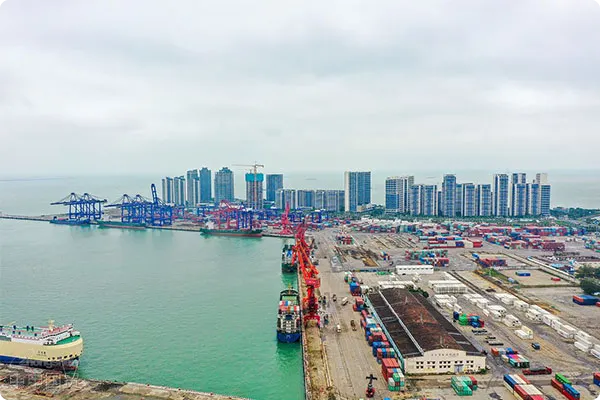- Shanghai Zhongshen International Trade Co., Ltd. - Two decades of trade agency expertise.
- Service Hotline: 139 1787 2118
Today, lets talk about some challenges in payments from Russian customers. Inforeign tradebusiness, we often encounter headache - causing problems with payment methods, especially when it comes to foreign exchange settlement, exchange rate fluctuations, and cross - border supervision. The situation becomes particularly complex. Below, we will explore with a real - life case - the risks and countermeasures in payment issues with Russian customers.

Challenges in Payments from Russian Customers
In the case we encountered this time, although the Russian customer has a good reputation, the payment method they proposed is very headache - causing. The customer hopes to settle in rubles through the ruble account of the Industrial and Commercial Bank of China, and then the ICBC will convert the rubles into RMB and pay the domestic company. It seems simple, but there are actually many uncertainties behind it.
The Risk of Exchange Rate Fluctuations
The customer mentioned using rubles for settlement, but for the seller,the Risk of Exchange Rate Fluctuationsis very high. Especially in the case of forward payments (for example, 60 - day payment), during this period, the exchange rate of the ruble against the RMB may change significantly. If the exchange rate is not favorable to the seller, the final amount received may be much lower than expected, thus affecting profits.
For this reason, it is recommended to negotiate with the customerto limit an exchange rate rangeif the exchange rate fluctuates beyond the預(yù)定的范圍, the price of the goods can be adjusted. Although this approach cannot completely eliminate exchange rate risks, it can at least reduce potential losses to a certain extent.
Regional Mandatory CertificationsThe Problem of Bank Receipt
Many banks are cautious about the inflow of funds from Russia. Especially against the background of tense international situations, the cross - border settlement of Russian funds has been subject to more stringent審查. Although the Industrial and Commercial Bank of China said it can accept RMB payments from Russia, whether it can be successfully credited actually still needs to be extra careful.
It should be noted here thatbeing able to receive RMBandand being able to receive RMB from Russiaare completely different concepts. Although some banks say they can receive RMB, they are not willing to receive funds from Russia. Therefore, it is recommended to confirm the banks policy several times to ensure that the transaction can be completed smoothly and avoid the trouble of subsequent returns.
Cultural and Religious NormsSuggestions for Customers Payment Operations
Facing this complex payment situation, it is possible to suggest that customers use more reliable payment methods to reduce risks. For example:
- Multiple Payments: Let the customer make more payments as rolling deposits for the quarter or year, which can be used to offset subsequent payment for goods. This method can effectively avoid the risks brought by exchange rate fluctuations, and it can also ensure that the customer has sufficient funds to cope with future orders.
- Customers Operate at Local Banks: It is recommended that customers operate through the banks they trust locally to ensure the compliance and smoothness of payments. This not only helps to reduce the risk of the payment being rejected by the bank but also helps the customer establish a more stable cooperative relationship with their bank.
How to Reduce the Risks of Exchange Rates and Settlement Currencies?
Limit the Exchange Rate Range
Clearly stipulate anexchange rate rangein the contract, for example, the exchange rate should not fluctuate more than 5% up or down from the exchange rate at the time of contract signing. If the exchange rate exceeds this range at the time of payment, both parties should renegotiate the price. This approach can give both parties a clearer expectation of future payment for goods and reduce disputes caused by exchange rate changes.
Use Forward Foreign Exchange Contracts
It is possible to consider signingforward foreign exchange contractswith the bank to lock in the exchange rate. This method is suitable for enterprises with long - term foreign trade needs, which can fix the exchange rate for a certain period in the future and prevent profit losses caused by exchange rate fluctuations. However, this method may incur certain handling fees, and enterprises need to weigh the pros and cons.
Increase the Flexibility of Payment Methods
Negotiate with the customer to increase the flexibility of payment methods. For example, part of the payment for goods can be accepted in US dollars to reduce the risk of exchange rate fluctuations. If the customer insists on settling in rubles, they can be required to pay more deposits to offset possible future exchange rate losses.
Summary
Facing the payment challenges from Russian customers, the most important thing isto control risks. Whether it is exchange rate fluctuations or bank receipt problems, they may affect the final payment and profitability. Therefore, before the transaction starts, it is necessary to communicate fully with the customer to clarify their respective responsibilities and obligations. At the same time, maintain good communication with the bank to ensure that the funds can be credited smoothly.
For foreign trade enterprises, although complex payment methods and the ever - changing international environment are headache - causing, as long as they are well - prepared and take appropriate measures, they can still maintain stable business operations in the complex international market. I hope this article can help you find some ideas in dealing with payment issues from Russian customers and reduce unnecessary troubles and losses.
I wish you all smooth sailing in foreign trade business and successful completion of every order!
Related Recommendations
Knowledge Base
Contact Us
Email: service@sh-zhongshen.com
Related Recommendations
Contact via WeChat

? 2025. All Rights Reserved. 滬ICP備2023007705號-2  PSB Record: Shanghai No.31011502009912
PSB Record: Shanghai No.31011502009912









